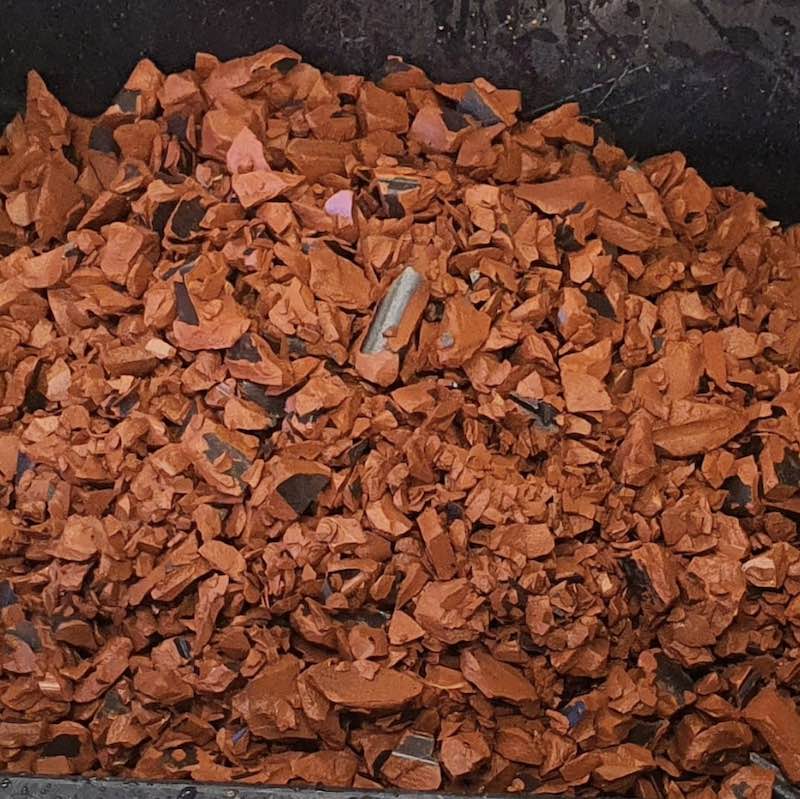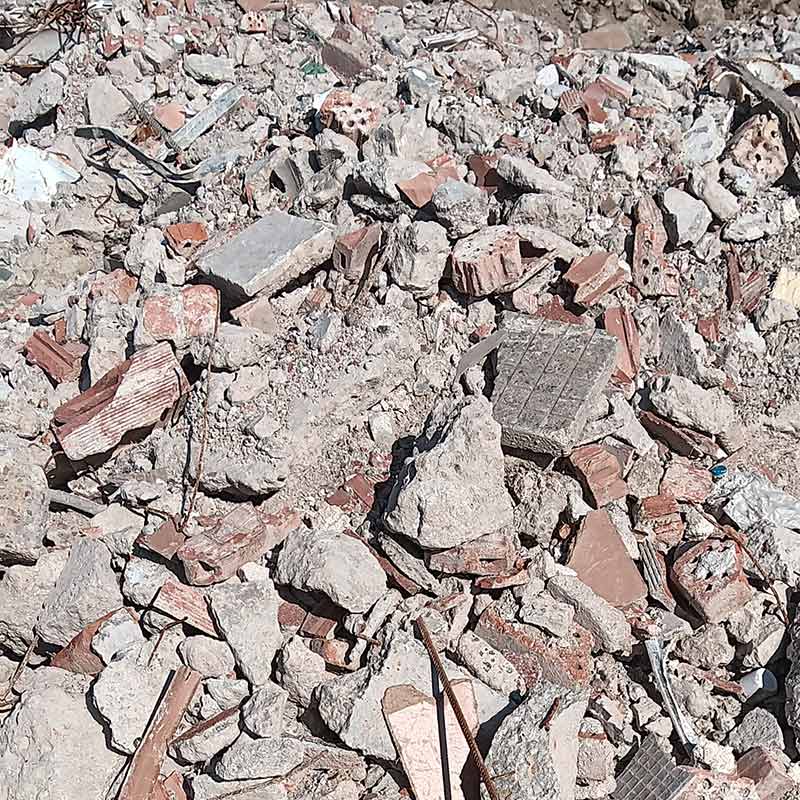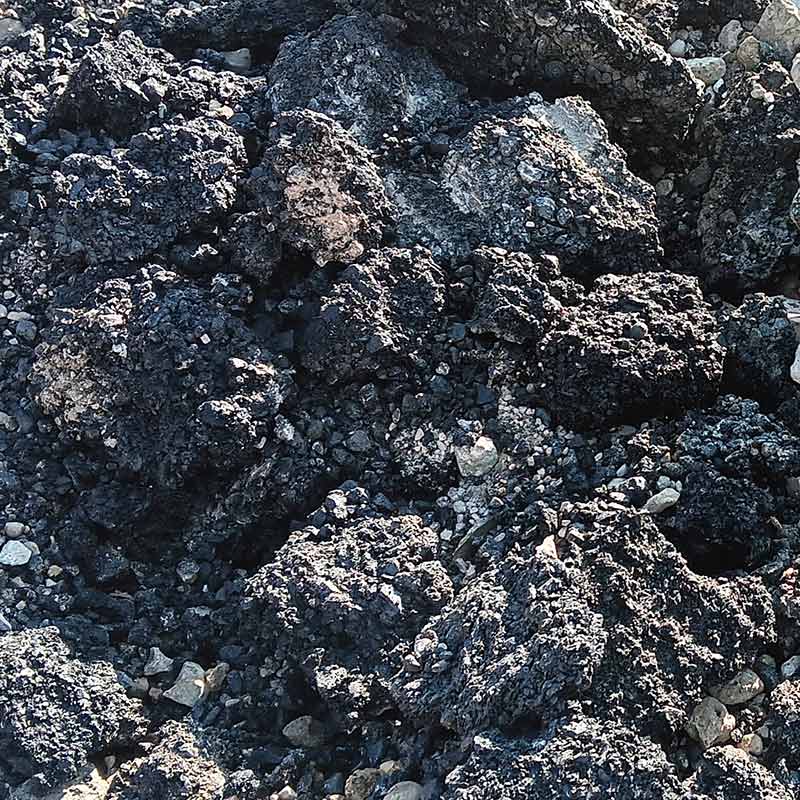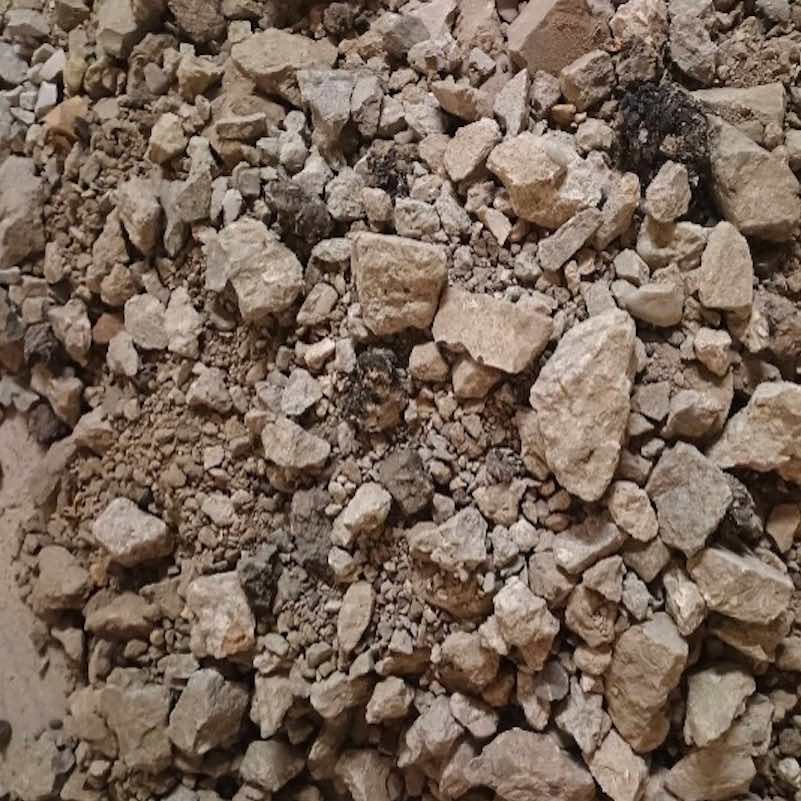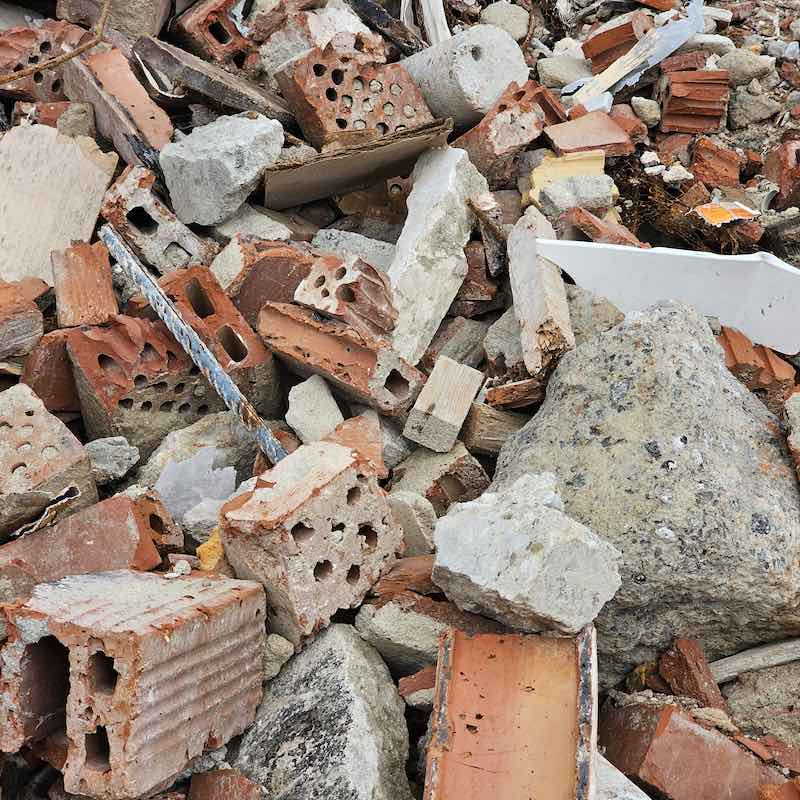The following types of sorted non-hazardous CDW are accepted for material recovery at the site (for recovery activities R5 and R12 according to a permit issued by the Regional Inspectorate for Environment, Water and Wastewater – Sofia):
(Waste code according to Ordinance No. 2 of 2014 on waste classification)
17 01 01 Concrete
From concrete and reinforced concrete structures and elements, from concrete pavements, from cement stabilised base course, from small-sized concrete elements (slabs, blocks, curbs), from concrete and reinforced concrete pipes, covers, manholes, tiles, cement and lime-cement mortars (screeds, plasters), etc.
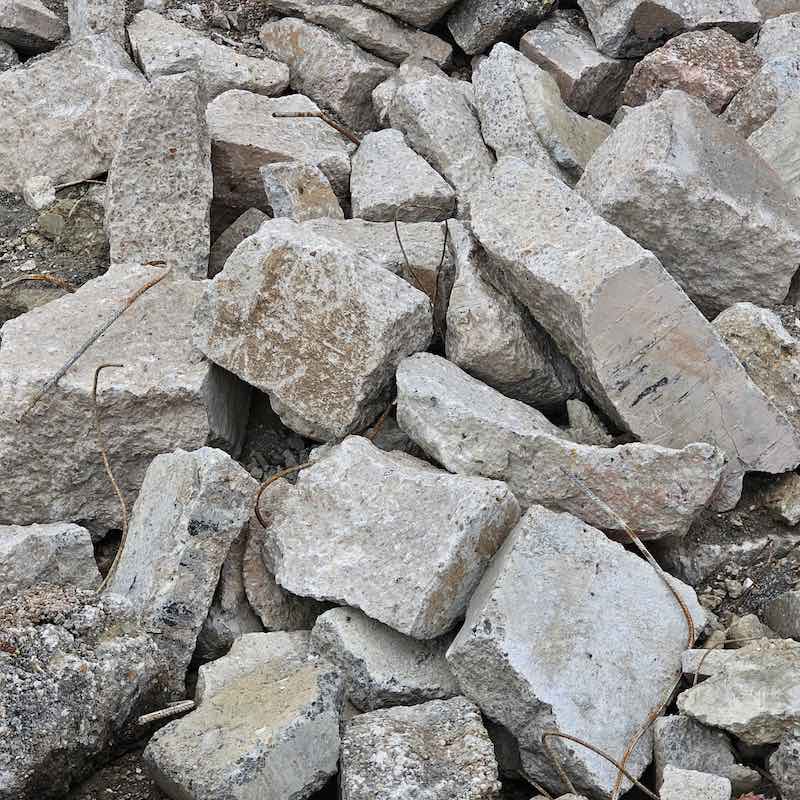
17 01 02 Bricks
From ceramic bricks and blocks – solid and hollow, from masonry with ceramic bricks and blocks, from masonry with lightweight concrete blocks (e.g. YTONG, foamed concrete, etc.)
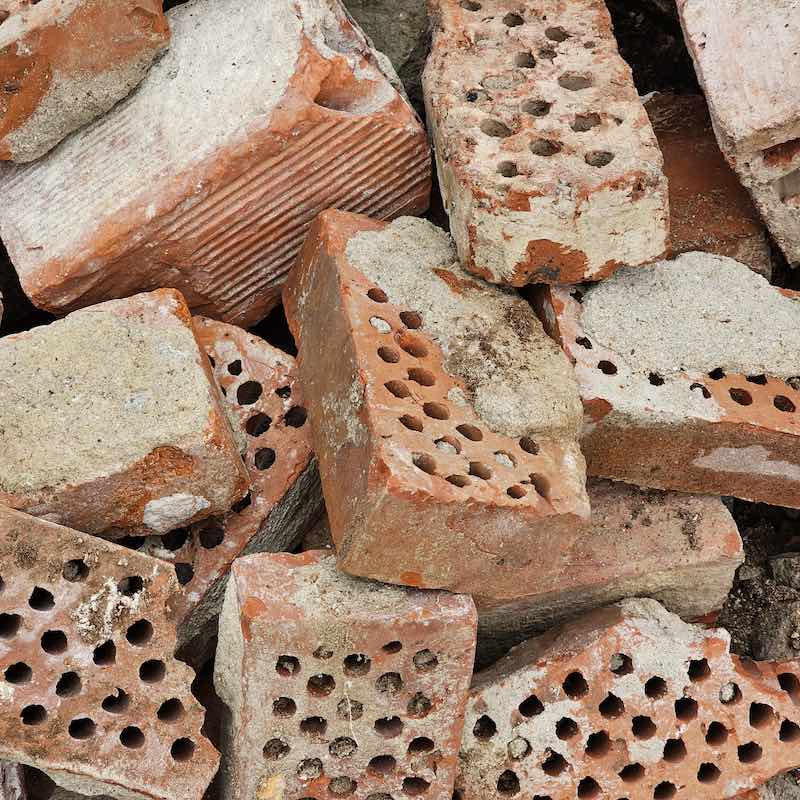
17 01 03 Tiles and ceramics
Ceramic tiles and covers, ceramic and stoneware plates and pipes, faience, porcelain and terracotta products
17 01 07 Mixtures of concrete, bricks, tiles and ceramics other than those mentioned in 17 01 06
Mixtures of ceramics, bricks, plaster, concrete, when it is impossible to separate the individual components
17 03 02 Bituminous mixtures other than those mentioned in 17 03 01
From milling or breaking asphalt pavements, including wearing course, binder and base courses, bituminised crushed stone layers, asphaltic screeds, etc.
17 05 04 Soil and stones other than those mentioned in 17 05 03
Crushed stone, river sand and crushed sand, which were used in construction; Rock materials from pavements and flooring (paving blocks, tiles, curbs) and cladding (tiles, cornices); Decorative elements made of rock materials, etc.
17 09 04 Mixed construction and demolition wastes other than those mentioned in 17 09 01, 17 09 02 and 17 09 03
Mixed CDW with a predominant mineral fraction (concrete, bricks, ceramic materials, rock materials), which may contain a small amount of impurities (plastics, wood and insulation materials).
Notes
- In the presence of too large quantity of impurities and/or hazardous/potentially hazardous CDW, the site operator may refuse to accept such mixed CDW.
- In case CDW originates from potentially contaminated sites (listed in Appendix 10 of the Ordinance on CDW management https://lex.bg/en/laws/ldoc/2137178691), the non-hazardous nature of that CDW should be proven before it is transferred to the GBS recycling site. “GBS-Infrastructure Construction” AD can provide services for the identification of hazardous CDW and the characterization of CDW.
The following types of sorted non-hazardous CDW are accepted for material recovery at the site (for recovery activities R5 and R12 according to a permit issued by the Regional Inspectorate for Environment, Water and Wastewater – Sofia):
(Waste code according to Ordinance No. 2 of 2014 on waste classification)
Additional Services We Offer
Pre Demolition Expertize
We offer professional consultations to optimize construction waste recycling processes.
Identification of Dangerous Demolition Waste
Comprehensive solutions for construction waste management and processing, aligned with best practices.
Selective Demolition
Интегриране на съвременни технологии за ефективно рециклиране и минимизиране на отпадъците.
Specialized Machinery and Transportation
Интегриране на съвременни технологии за ефективно рециклиране и минимизиране на отпадъците.
Register now
Join the MOBICCON-PRO Network if you are:
-
Specialized companies engaged in the collection, treatment, removal, or storage of construction and demolition waste;
-
Public institutions and municipalities involved in construction waste management and environmental policy development;
-
Construction companies seeking to optimize their operations by integrating recycled materials and sustainable solutions.
If you already have a registration:
Log in to your profile and take advantage of the opportunities offered by the MOBICCON-PRO platform:
-
Access to resources and data on construction waste management and recovery;
-
Communication and information exchange with other network members;
-
Monitoring and participation in activities, initiatives, and events related to construction waste management.
Phone
+359(0) 887 76790
Address
17, Evtim Evtimov str., Botunetz distr., Kremikovtzi area, Sofiq, Bulgaria
Contact us for more information
Join our efforts for a sustainable future. Contact GBS Infrastructural Construction, to learn how you can benefit from the recycling of construction waste and get informed about our products and services.

